First Pages of Best-Selling Novels: All the Light We Cannot See
This week we’re going to look at the first page of the highly acclaimed novel All the Light We Cannot See by award-winning author Anthony Doerr. This book is described on Amazon as a “beautiful, stunningly ambitious instant New York Times bestseller about a blind French girl and a German boy whose paths collide in occupied France as both try to survive the devastation of World War II.”
With my curiosity aroused by a number of my editing clients who absolutely loathed this book and couldn’t get far into it, I checked out the audiobook from my library. Despite my determination to listen to the whole novel, I only made it into the second (of many) disks before I wanted to crash my car into a hillside in irritation (I listen to a lot of audiobooks as I drive).
Here again is another Pulitzer Prize–winner that leaves me scratching my head in confusion. Seriously, speak up if you not only got through this story but loved it.
What bothers me? The excessive narrative. We’ve been seeing how a lot of these best sellers open with pages of narrative. And what’s interesting to me is it seems the more famous and successful the author, the more narrative they succumb to. Well, at least in the literary fiction arena.
Yes, I guess you can tell I’m not a huge fan of excessive narrative. Why? Because narrative is telling. It’s explaining instead of showing. Like many readers, I want to watch the scenes play out; I don’t want a synopsis or summary of the novel. I can read that in the product description.
I want to be immersed in story and setting and characters. Which is why so many writing instructors (myself included) strongly stress that writers “show, don’t tell.”
So why do so many novels, like this one, garner so much praise when they are drowning in narrative? I don’t know. I only know that I don’t like it. And apparently a lot of agents and publishers don’t like it either. There must be some readers out there who do.
Some narrative is fine, honestly. The opening pages of this novel are wonderful, to a point. They set the stage. In the opening chapters we learn about these characters and their situation during the war. But it’s all told via narrative. And frankly, I find it tedious and boring. Someone would have to pay me to read the rest of that book. I’m serious.
The first page we’re looking at has some wonderful writing, and evokes great images. And I feel it’s a strong opening page because of it. But after a hundred pages of being told what is going on, I gave up. Maybe you’re different and like this kind of telling of a story. That’s fine. Do I think unknown novelists can get away with this? No. Well, a few do. But it’s a hard sell.
Let’s take a look at Doerr’s first page, then go through my checklist to see why it works, and then I’ll share my stuffy opinion on how it could be better. Keep in mind these are all my subjective observations. I am not saying I’m right or my opinion is gospel. It’s just my opinion. I critique more than two hundred manuscripts a year, and I’ve learned a lot over the last three decades on what makes a strong story and what doesn’t. At the end of the day, though, I’m just a reader, same as you or anyone else. And that’s what I bring to these first-page analyses. Feel free (please) to disagree with me!
These first sections are placed on separate pages, but since they’re short, I included more than just the first page to have enough to consider in this examination.
Zero
7 August 1944
Leaflets
At dusk they pour from the sky. They blow across the ramparts, turn cartwheels over rooftops, flutter into the ravines between houses. Entire streets swirl with them, flashing white against the cobbles. Urgent message to the inhabitants of this town, they say. Depart immediately to open country.
The tide climbs. The moon hangs small and yellow and gibbous. On the rooftops of beachfront hotels to the east, and in the gardens behind them, a half-dozen American artillery units drop incendiary rounds into the mouths of mortars.
Bombers
They cross the Channel at midnight. There are twelve and they are named for songs: Stardust and Stormy Weather and In the Mood and Pistol- Packin’ Mama. The sea glides along far below, spattered with the countless chevrons of whitecaps. Soon enough, the navigators can discern the low moonlit lumps of islands ranged along the horizon.
France.
Intercoms crackle. Deliberately, almost lazily, the bombers shed altitude. Threads of red light ascend from anti-air emplacements up and down the coast. Dark, ruined ships appear, scuttled or destroyed, one with its bow shorn away, a second flickering as it burns. On an outermost island, panicked sheep run zigzagging between rocks.
Inside each airplane, a bombardier peers through an aiming window and counts to twenty. Four five six seven. To the bombardiers, the walled city on its granite headland, drawing ever closer, looks like an unholy tooth, something black and dangerous, a final abscess to be lanced away.
The Girl
In a corner of the city, inside a tall, narrow house at Number 4 rue Vauborel, on the sixth and highest floor, a sightless sixteen-year-old named Marie-Laure LeBlanc kneels over a low table covered entirely with a model. The model is a miniature of the city she kneels within, and contains scale replicas of the hundreds of houses and shops and hotels within its walls. There’s the cathedral with its perforated spire, and the bulky old Château de Saint-Malo, and row after row of seaside mansions studded with chimneys. A slender wooden jetty arcs out from a beach called the Plage du Môle; a delicate, reticulated atrium vaults over the seafood market; minute benches, the smallest no larger than apple seeds, dot the tiny public squares.
Marie-Laure runs her fingertips along the centimeter-wide parapet crowning the ramparts, drawing an uneven star shape around the entire model. She finds the opening atop the walls where four ceremonial cannons point to sea. “Bastion de la Hollande,” she whispers, and her fingers walk down a little staircase. “Rue des Cordiers. Rue Jacques Cartier.”
Why This Works
So here are the checklist items from my first-page checklist:
Opening Hook: Nice imagery transports readers right away. The title of the section—Leaflets—plainly tells us what we’re seeing fall from the sky. An effective cinematic technique. The choice of verbs is also grabbing. They pour from the sky. Turn cartwheels, swirl, flutter. (Maybe a bit of overkill here but it does create a strong visual and sense of dancing motion, almost gentle and harmless, though the message contained in the leaflets is anything but.
Introduction of main character in first few lines: We don’t get introduced to Marie until the third section, but it’s early in the story and after just enough interesting setup to help us understand her situation. We don’t know what city she’s in, and we know she’s blind.
Starting the story in the middle of something that’s happened (or happening): Clearly. France is about to be bombed, and we guess Marie’s town in particular.
A nod to setting; avoid excessive exposition or narrative: Beautiful setting bits. We get the cobbles, the rooftops, the tide rising under a visible moon, the hotels and their gardens. Doerr does a lovely job of putting in just enough to picture this coastal area of France at night. And then we get the setting from the POV of the bombers, looking down at the water with its whitecaps and lumps of islands. When the bombs fall, we see ships burn and sheep zigzagging.
A catalyst, inciting incident, or complication introduced for your character: Marie doesn’t know the bombers are coming yet, but the reader knows. It’s clearly going to be a complication.
A hint at character’s immediate intentions: None. Other than she’s feeling around the model of the city to learn or memorize where each building is (more of this goes on and on after this page).
A hint at character’s hidden need, desire, goal, dream, fear: None.
Unique voice/writing style: Beautiful writing. Concise, strong nouns and verbs.
Setting the tone for the book: Implied. This is omniscient storytelling, observing instead of giving subjective deep POV insights.
A glimpse at character’s personal history, personality—shed light on motivation: Nothing this early other than she’s blind (though we don’t know the circumstances surrounding that). We don’t get any feel for her personality or need.
Hint of character’s initial plot goal: None other than to study the model of the city.
A course of action/decision implied. Introduction of high stakes/dramatic tension: None yet. We can guess she will have to make decisions when the bombs come. The high stakes and dramatic tension are set up with the imagery of the leaflets and bombs coming her way.
Good pacing; jump right into present action. The narrative strongly gets right into action with the opening sections. Through that omniscient POV we get a glimpse of impending doom from different perspectives. We see the flood of leaflets raining down around the region in a moonlit night knowing it won’t help anyone as the bombers and gunners are already on attack.
- One characteristic to reveal that makes your character heroic and vulnerable: We assume Marie is a bit vulnerable because she is blind, but we really don’t know.
- One element of mystery, something hinted at that raises curiosity: The fact that Marie is blind and may be alone at the moment the bombs drop might arouse interest to see how she will survive.
- One element out of the ordinary, unusual, that makes the book different/stand out: Nothing unusual or different in particular, but the setup for the opening incident is creatively done with this omniscient POV and choice of details.
- Concise, catchy dialogue (if in the first scene) that is not boring or predictable: No dialogue.
- A hint at theme: Novels about war generally center of themes of loss, survival, right and wrong, the value of life, etc. We might guess this book will deal with some of those but no themes are hinted at directly.
What Could Have Been Better
I love the opening two sections. They are short, beautifully written, highly visual and textural to me. I wouldn’t change a thing except maybe clarify the bit about the ships. I had to reread a few times to get that the ships appearing, ruined and dark were ones that just now had been bombed and destroyed. It would help, to me, if the wording made clear the bombs dropped and then ships burst into flares of light and fire below them as the planes pass.
The third section about Marie begins the problematic plethora of tedious narrative. If only Doerr kept up the tight, sharp, vivid narrative style of the first two sections. By the end of those two paragraphs, I’m already tired and losing interest (this goes on for a couple of pages until she hears a sound and finds a leaflet stuck in her window shutters—something she off course can’t read. Then there is a lot of backstory about the hotel and who has been living there the last few weeks . . .).
The writing gets bogged down with extra words we really don’t need. Do we need to know the house is both tall and narrow, and that she is on both the sixth and highest floor? If she’s kneeling in front of a table and can feel the model buildings, does the author need the word low? I’d say covered with a model, not covered entirely. Just as with telling us she is sightless, Doerr could have shown instead of told us these things. When we get the description of the model city, it seems it’s covering entirely the table before her. And if not, I still don’t need entirely.
I think just a few names and descriptions of some of the buildings or piers would suffice. As a reader, I want to 1) get faster into some action and 2) want to know the character’s mind-set and motivation. Some hint at how she is feeling right now about her life and why she’s studying the model. To get engaged, to care, to find her empathetic, I need more than “a sightless sixteen-year-old.” Even the section is called “The Girl” to keep readers at a distance.
This is what’s problematic about the first chapters of this book I slogged through (listening was probably less tedious than actually reading, perhaps). The omniscient POV is also problematic to me. On the next page she opens the windows and hears “the bombers.” How much better if we were in her deep POV so that when she hears the noise and it’s described, she has no idea what’s coming. That she hears planes but maybe ones that sound different from what she’s heard before. Maybe this instills fear. Maybe she’s heard war is coming. We don’t know at all what she knows, feels, thinks, fears, hopes. And without hints of those things, you have a story that makes it difficult to engage readers.
Unless of course you like the challenge of making yourself love an unengaging story because it’s the popular thing to do.
Before you throw something at me, read on.
An interesting comment is made in an interview with Diane Rehm (NPR Radio) and author Boris Fishman. Fishman says “. . . In many ways, the exuberance and the lushness of the language, I would say it’s all the more miraculous that this book has become the hit it is because the language is so challenging. I mean, it’s the kind of thing that many readers often find hard to put up with so I think they’ve fallen in love with the book despite the language, not only because of it. . . . And that only makes me more optimistic about the state of reading in America today, you know.”
Sorry, but to me this epitomizes the whole elitism of such novels and their supporters. You praise a book because it’s nearly unreadable? That this says something encouraging about America’s (or any nation’s) readers? It’s not the writing that’s difficult to understand; much of it is beautifully crafted. But it’s the endless narrative telling that makes it hard to slog through.
Book critic (NRP) Maureen Corrigan in that interview says the book is such a success because “it’s got an amazing complex unput-downable narrative plot. It’s got characters who are just so compelling and the language is poetic. I mean, almost every page has a phrase, a description, a bit of dialogue where I stopped and reread that section again because I was so blown away by the language.” And the example she gives (since she’s then asked to give one) is this:
Marie-Laure stands alone in her bedroom smelling leaflet she cannot read. Sirens wail. She closes the shutters and relatches the window. Every second the airplanes draw closer. Every second is a second lost. She should be rushing down stairs. She should be making for the corner of the kitchen where a little trap door opens into a cellar full of dust and mouse-chewed rugs and ancient trunks long unopened.
Instead, she returns to the table at the foot of the bed and kneels beside the model of the city.
Again, her fingers find the outer ramparts. In this window right here in the real city, a woman beats her rugs every Sunday. From this window here, a boy once yelled, watch where you’re going. Are you blind?
The window panes rattle in their housings. The anti-aircraft guns unleash another volley. The earth rotates just a big farther.
Beneath her fingertips, the miniature rue d’Estrées intersects the miniature rue Vauborel. Her fingers turn right; they skim doorways. One two three. Four. How many times has she done this?
Number 4: the tall, derelict bird’s nest of a house owned by her great-uncle Etienne. Where she has lived for four years. Where she kneels on the sixth floor alone, as a dozen American bombers roar toward her.
Okay, nice. I enjoy this. But while I can picture this, and all the events unfolding on subsequent pages, I can’t get into the characters or really care about them because I’m mostly being told about them instead of being immersed in experiencing the moments with these characters. I can’t tell if she’s at all upset, fearful, or happy that she’s being bombed.
What about you? Do you have trouble with pages of narrative? Does beautiful language and writing cover a multitude of sins for you? Do you feel distanced from the characters by this type of narrative? And what are your thoughts about novels told solely in omniscient POV?
 Want to read all the analyses of best-seller first pages on Live Write Thrive?
Want to read all the analyses of best-seller first pages on Live Write Thrive?
Get the compiled collection of posts, along with additional insights and instruction that will help your first pages rock!
First Pages of Best Sellers: What Works, What Doesn’t, and Why is available in Kindle ebook and paperback! Get yours HERE!

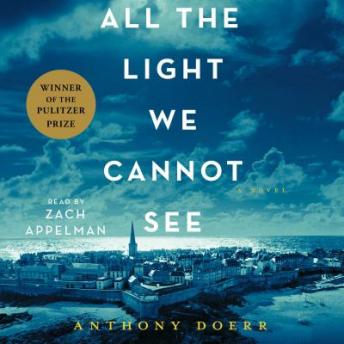
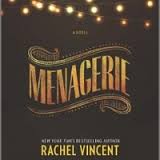
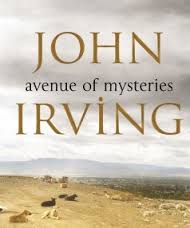
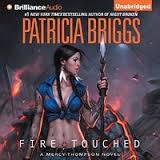
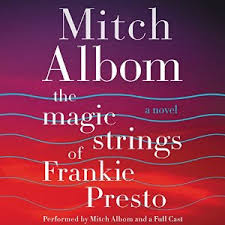
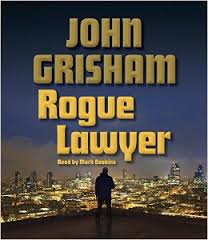





Although I haven’t read the novel, I agree with you that it sometimes doesn’t make sense why a novel wins a Pulitzer price while it is quite boring to a lot of readers. The art of writing is sometimes so esotheric and the product so inaccessible for a good deal of readers that I have the impression that the prizes are awarded by professors in literature and only certain books are considered.
I have no university education in literature, but love writing and reading. Your analysis of the first page was spot on. I am in the middle of writing a book about the second world war and there are many hurdles to take, one of them is the history that is well known and needs to be incorporated into the story around the characters somehow; adding quite alot of narrative is practically unavoidable and a omniscient narrator a handy means for doing that, especially if there is no dialogue between characters to reflect some of the historical events. I have the same problem with my draft.
Our messages went out around the same time. Funny we used the same expression, “spot on.” So British. For a great look at how an author can relay all the historical details necessary through the character’s eyes, in particular about WWII, take a look at Connie Willis’s Black Out/All Clear. Willis deals with time travel and alternative history, so perhaps it’s not the tone you are seeking, but she is masterful at getting readers to experience what happened in the past through a whole cast of colorful, engaging characters.
“Spot on” review. This book was on my to-read list for months. I did the real first-page test in a bookstore and back it went on the shelf. True, skilled, lush writing. But, as you observed, no engagement with the character. Is this a new thing then? A return to dense narrative? I picked up Birdsong by Sebastian Faulks and find the same literary approach. I’ve had it for a month now and am on page 63. The first page is all description of a locale, and unlike Doerr’s novel, no hint of any situation brewing, let alone conflict. And the characters are kept at such a distance, it’s impossible to care much about them. BTW Ms. Lakin, your posts are among the very few that I always open when they land in my in-box. Thanks for the insights.
I couldn’t get through the first few paragraphs. It bored me to tears, frankly. Nothing was happening. No emotions, no pov..dull!
I started and quit this book THREE times! I started because so many loved it. I quit reading because it was so. darn. slow.
Finally, I got it on Audible and listened it to while doing yard work. The only problem with that was the changes in times BUT when I got past the 1/3 I kept quitting, I loved it.
I love books from different viewpoints that you know will converge and you have to wait and wait for them to collide and it keeps you reading and you wonder what’s going to happen and then it does and wow. So yeah. I ended up loving the book (except for one scene that made me sad and sick).
Just shows everyone has their own taste for fiction. Which is a good thing. There are readers out there who enjoying struggling through a novel, like conquering Everest. Maybe there’s a sense of satisfaction in making it through reading something that strains your mind and challenges readers’ attention. Just not why I read. I want to be swept away, immersed in story, transported effortlessly into the lives of characters. If I have to fight my way in, it’s not worth it.
I did read this book all the way through and liked it. However, I didn’t think it was as good as some professional critics and GoodReads friends did. I agree it could have been edited better and deep POV would have improved it.
while I agree with you about the confusing second section of the first page, I don’t mind having to work a little at the beginning of a book. I loved this novel, but I prefer novels which move more slowly than most genre fiction. I don’t want to be dragged from one scene to the next, unable to catch my breath.
I feel the bit about “The Girl” sets up a mystery. I want to know why this blind girl is doing something so unusual while bombs land around her, and why she’s alone.
I really enjoyed this book. I agree that it was descriptive and more tell than show but I enjoyed the language and I found the plot line quite suspenseful. How would Marie-Laure cope with the bombing alone? Would the Nazis catch her and her Uncle? would Werner or Von Rumpel get to her first? I also thought that the characters of Werner and Marie-Laure were well developed and empathetic. Werner being dragged into complicity with the Nazis and Marie-Laure learning to use all of her remaining senses. I especially enjoyed her visits to the water-gate in St Malo and her evocation of the sea-shore. I also really appreciated your analysis of the opening pages. Really, really helpful for aspiring writers.
I think this statement, “Unless of course you like the challenge of making yourself love an unengaging story because it’s the popular thing to do,” and Rehm’s “I think they’ve fallen in love with the book despite the language” to be rather…well…not nice to the readers out there.
I read this book and loved it. I didn’t find myself “struggling” and I enjoyed the style it was written in. Not everyone who read this book had the experience of it being some sort of Herculean effort.
Thanks, so true. Yes, everyone is different. I love literary fiction and write it myself, and I could stand excessive narrative if it was more intriguing and riveting. I just can’t take hours to warm up to a book. I’m getting too old to waste that kind of time in the hopes a novel will start getting good. I did stick with The Goldfinch almost to three-quarters through until I realized there were so many other novels to read worth my time.
Hi
I might be a little weird, but I really enjoyed this book. My enjoyment began with the title and continued to the end.
If the writer had written it like you suggest, the title wouldn’t work. I liked that he didn’t go into everything his characters felt and thought. It gave me the feeling that I was there and not having any idea of what was going on other that what was happening directly to me.
It was like we live every day. We see things and never know why or how they happened. We hear people opining but not having the least bit of knowledge about they they are saying.
Everything we do in our lives is surrounded by”All the Light We Cannot See”.
I feel he delivered me to the battlefront and let me feel as if I were there…wondering and only knowing what is happening to me…
Thanks for the opportunity to opine about “That Which I do not Know.
Stan B
I agree with much of your assessment. This book received 2 stars from me because of some of the reasons you stated, such as the omniscient POV and bogged down by words. His purple prose buried the characters. I had no relationship with them, therefore, I didn’t care what happened. Plus, some of the things described of Marie-Laure didn’t make sense. Instead of Doerr using his beautiful words to describe Marie’s actions through her senses, he just tells the reader. Example:
“…but Marie-Laure is certain that when they stopped to greet a woman on the way here, Madame dropped off one envelope and picked up another.”
The girl is blind. Did she hear the rustling of paper? A handshake? “Marie-Laure heard the rustling of paper when they stopped to greet a woman on the way here, a slight snigger escaped their lips before they moved on.”
http://baerbookspress.com/writing/all-the-light-we-cannot-see-by-anthony-doerr/
A good writer does not mean a good storyteller. I believe every word must count to move the plot along. I love your reviews and helpful hints. This critque was spot on. Maybe I’m wrong, but less is more.
Although a friend recommended this book and loved it, I have yet to do so. Now that I have read your comments I doubt I will. Whenever a book acquires such a prestigious award or recognition, I automatically reject it because every time I attempt to read one, I find they are too “artsy.” I am not opposed to artsy, but they are boring and don’t entertain me with a character journey to which I can relate. Emotion is nearly invisible and oftentimes they lack a plot you can actually follow.
What a great idea, posting these first-page reviews and providing such a checklist. Nicely done.
I found you because I’ve done an eval of the very pages in ATLWCS using different criteria and I wanted to compare notes. I would agree with you on every point you make. Meanwhile, according to my checklist, I think I could explain why the book sold so well, even with the issues you and your readers have raised.
However, that’s not the reason I’m here. I’m writing to thank you for the checklist. I’ve been shopping a novel to agents and I’m exceedingly conscious of first pages. Even so, you raised a couple issues that I’d overlooked. So I added seven measly words that helped me put more checkmarks on your form. Next submissions go out today with your improvements. We’ll see, eh?
Let you know how it turns out. And thanks again.
Jims
Thanks! Just FYI, I did 26 of these, so if you are interested in reading more, just type in the search bar “first pages” and you’ll pull them up.